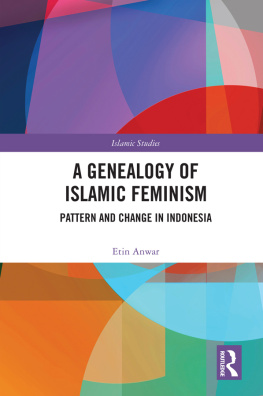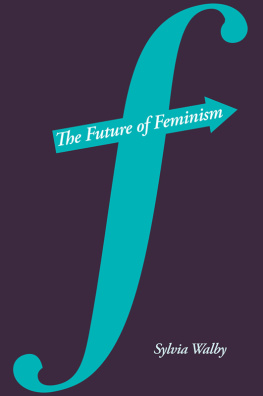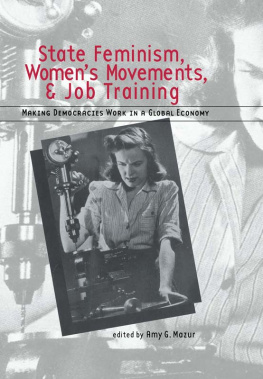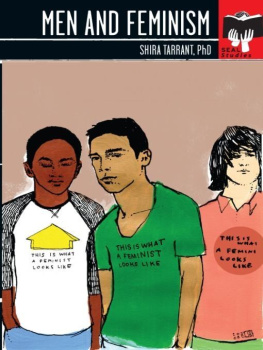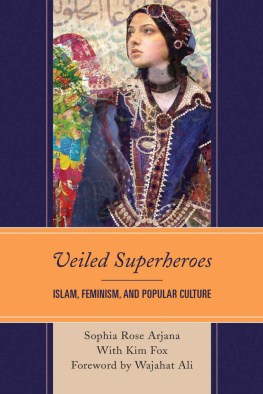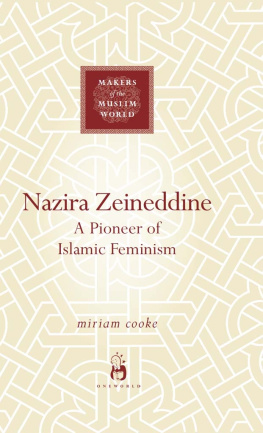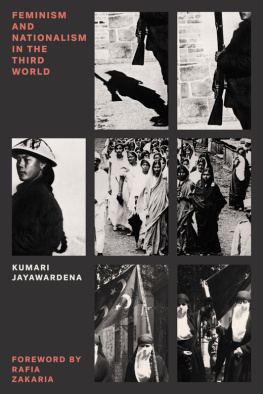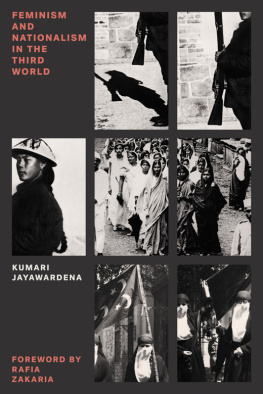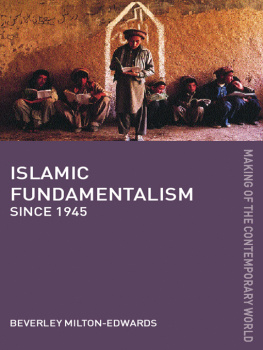A Genealogy of Islamic Feminism
A Genealogy of Islamic Feminism offers a new insight on the changing relationship between Islam and feminism from the colonial era in the 1900s to the early 1990s in Indonesia. The book juxtaposes both colonial and postcolonial sites to show the changes and the patterns of the encounters between Islam and feminism within the global and local nexus. Global forces include Dutch colonialism, developmentalism, transnational feminism, and the United Nations institutional bodies and their conferences. Local factors consist of womens movements, adat (custom), nationalism, the politics underlying the imposition of Pancasila ideology and maternal virtues, and variations of Islamic revivalism. Using a genealogical approach, the book examines the multifaceted encounters between Islam and feminism and attempts to rediscover egalitarianism in the Islamic tradition a concept which has been subjugated by hierarchical gender system. The book also systematizes Muslim womens encounters with Islam and feminism into five eras: emancipation, association, development, integration, and proliferation. Each era discusses the confluence of global and local factors, which shapes the changing relationship between Islam and feminism and the way in which the discursive narrative of equality is debated and contextualized, progressing from biological determinism (kodrat) to the ethico-spiritual argument.
Islamic feminism contributes to the rediscovery of Islam as the source of ethics, the centering of womens agency through spiritual equality, and the reworking of the private and public spheres. This book will appeal to anyone with interest in international womens movements, interdisciplinary studies, cultural studies, religious studies, womens studies, postcolonial studies, Islamic studies, and Asian studies.
Etin Anwar serves as Chair of Religious Studies at Hobart and William Smith Colleges, Geneva, New York. She is the author of Gender and Self in Islam (Routledge, 2006) and has published several articles on Ibn Sina, Meister Eckhart, gender, and Muslim womens movements in Indonesia in various journals and edited books.
Islamic Studies Series
This broad ranging series includes books on Islamic issues from all parts of the globe and is not simply confined to the Middle East.
Postcolonialism and Islam
Theory, Literature, Culture, Society and Film
Geoffrey Nash, Kathleen Kerr-Koch and Sarah E. Hackett
The Teaching and Study of Islam in Western Universities
William Shepherd, Toni Tidswell, Paul Trebilco and Paul Morris
Muslim Active Citizenship in the West
Mario Peucker and Shahram Akbarzadeh
Refashioning Secularism in France and Turkey
The Case of the Headscarf Ban
Amlie Barras
Islam, Context, Pluralism and Democracy
Classical and Modern Interpretations
Yaser Ellethy
Young Muslim Change-Makers
Grassroots Charities Rethinking Modern Societies
William Barylo
Dawa and Other Religions
Indian Muslims and the Modern Resurgence of Global Islamic Activism
Matthew J. Kuiper
A Genealogy of Islamic Feminism
Pattern and Change in Indonesia
Etin Anwar
For more information about this series, please visit: www.routledge.com/middleeaststudies/series/SE0516
A Genealogy of Islamic Feminism
Pattern and Change in Indonesia
Etin Anwar
First published 2018
by Routledge
2 Park Square, Milton Park, Abingdon, Oxon OX14 4RN
and by Routledge
711 Third Avenue, New York, NY 10017
Routledge is an imprint of the Taylor & Francis Group, an informa business
2018 Etin Anwar
The right of Etin Anwar to be identified as author of this work has been asserted by her in accordance with sections 77 and 78 of the Copyright, Designs and Patents Act 1988.
All rights reserved. No part of this book may be reprinted or reproduced or utilised in any form or by any electronic, mechanical, or other means, now known or hereafter invented, including photocopying and recording, or in any information storage or retrieval system, without permission in writing from the publishers.
Trademark notice: Product or corporate names may be trademarks or registered trademarks, and are used only for identification and explanation without intent to infringe.
British Library Cataloguing-in-Publication Data
A catalogue record for this book is available from the British Library
Library of Congress Cataloging-in-Publication Data
A category record for this book has been requested
ISBN: 978-1-138-72330-6 (hbk)
ISBN: 978-1-315-19309-0 (ebk)
Typeset in Times New Roman
by Apex CoVantage, LLC
To my teacher, Howard F. Federspiel,
for his love of Indonesian people and cultures
Contents
A Genealogy of Islamic Feminism: Pattern and Change in Indonesia seeks to provide an intellectual coherence to my pursuit of reconciling the debates over the divergent and convergent relationships between Islam and feminism. It offers a discursive narrative of what it means to be Muslim women within the contexts of colonialism and postcolonialism in Indonesia and how they have pursued equality within the trajectories of global and local encounters of gender justice, indigenous and foreign cultural forces on gender roles, state ideology and religious emphasis on gender order, and secular/feminist and Islamic arguments of equality. This book shows the changing relationship between Islam and feminism from the colonial era in the 1900s to the emergence of Islamic feminism in the early 1990s. Personally, this book has become a means for me to sate my personal fascination with Islamic feminism, a subject that I have long been captivated by as illustrated by one of my earlier publications in Republika, from September 7, 1996, titled Teologi Perempuan dalam Wacana Islam (The Theology of Women as a Discourse in Islam).
I have pursued this project for over a decade. I am glad that I did not give up when I lost my projects backup data, when my computers died without warning, when petty theft resulted in the loss of my laptop, when the synthesis of multiple topics became overwhelming, and when many other obstacles kept knocking me down. I am also grateful for the communities I am in and the extended family I have. I would like to thank Professor Howard Federspiel for introducing me to the discourses of Islam and women in Southeast Asia, especially Indonesia. My sincere appreciation goes to Homa Hoodfar, Bat Ami Bar, Marcia Hermansen, Wendy Allen, Anthony Preus, Theresa Amott, Titi Ufomata, and Vivienne Angeles for their generous supports at different stages of my intellectual journey. I express my deepest thanks to Parviz Morewedge and Rosemary Morewedge for their unwavering supports of my family since the day we arrived in the United States. My gratitude also goes to Anne and Rick Hoyt for their friendship.
I would like to acknowledge the supports of many individuals that have contributed to my research in many different ways. In the Netherlands, I am grateful for the support of Drs. S.R. (Yayah) Siegers-Samaniri and Henk Schulte Nordholt from Koninklijk Instituut voor Taal-, Land- en Volkenkunde / Royal Netherlands Institute of Southeast Asian and Caribbean Studies for facilitating my visit to Leiden University in 2010. This visit introduced me to the library collections on the historical origin of the relationship between Islam and feminism. I also thank Siswa Santoso and his wife, Eva Evarina, who were hospitable and generous during my visit to the Netherlands. In Spain, I would like to express my gratitude to Laura Rodrguez Quiroga and Abdennur Prado for introducing me to the Islamic feminism conference. In Indonesia, I am thankful for old and new friendship and connections I made in the process of researching Islam and feminism. My thanks go Musdah Mulia, Soraiya Kamaruzzaman, Zubaidah Djohar, Fuadi Mardhatilah, Jarot Wahyudi, Emma Marhamah, Siti Ruhaini Dzuhayatun, Neng Dara Affiah, Ida Rosyidah, Farha Ciciek, Kyai Hussein Muhammad, Nina Nurmila and others whom I cannot mention one by one. They have given me the opportunity to learn about their contributions to womens advancement in Indonesia. As a member of the Indonesian diaspora, I deeply cherish my Indonesian heritage that has given me the most insightful perspective toward this project and womens life in general. My insiders experience has allowed me to impart my heart and mind into this work. At the same time, I have benefited from my diaspora experience, which has given me access to research and intellectual trainings in Western educational systems. This book is, therefore, a testimony of the convergence between my experience as an Indonesian Muslim woman and my exposure to Western feminism.

